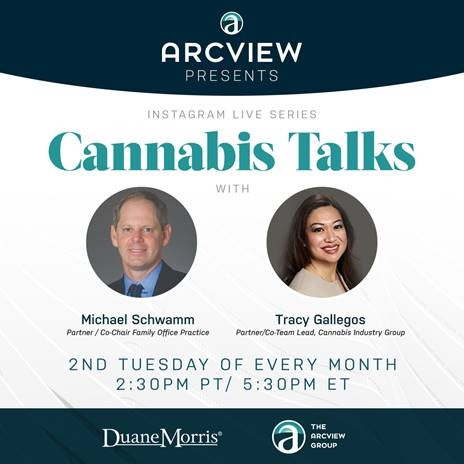Duane Morris’ Cannabis Industry Group is honored to once again be recognized with the elite law firms and attorneys in the cannabis industry.
Cannabis Industry Group and Attorneys Nationally Recognized by Chambers USA
 Duane Morris’ Cannabis Industry Group and team leads Seth Goldberg and Tracy Gallegos received national rankings in the Cannabis Law –
Duane Morris’ Cannabis Industry Group and team leads Seth Goldberg and Tracy Gallegos received national rankings in the Cannabis Law –
Nationwide area.
Chambers Review
What the team is known for: Utilizes cannabis expertise on a nationwide basis and across a broad spectrum of practice areas, with practitioners specializing in IP, corporate transactions and regulatory advice within the sector. Offers expanded capabilities in the wake of the 2018 Farm Bill for clients trading in hemp and hemp-derived CBD products. Also boasts litigators able to handle contentious issues for producers and distributors across the industry.
Strengths: Clients describe Duane Morris as “a very well-regarded and respected firm in this space.” One client acknowledges its “deep bench with a lot of talent and experience in the cannabis industry.” Another adds: “The team as a whole is exceptionally knowledgeable. Its strengths include responsiveness and the ability to collaborate.”
Work highlights: Represented Glass House Group in its acquisition of Los Angeles-based cannabis concentrates manufacturer F/ELD Taste Matters.
Notable practitioners: Tracy Gallegos has extensive experience in the cannabis sector. Her practice covers regulatory issues, including licensing, in addition to corporate structuring and transactions.


